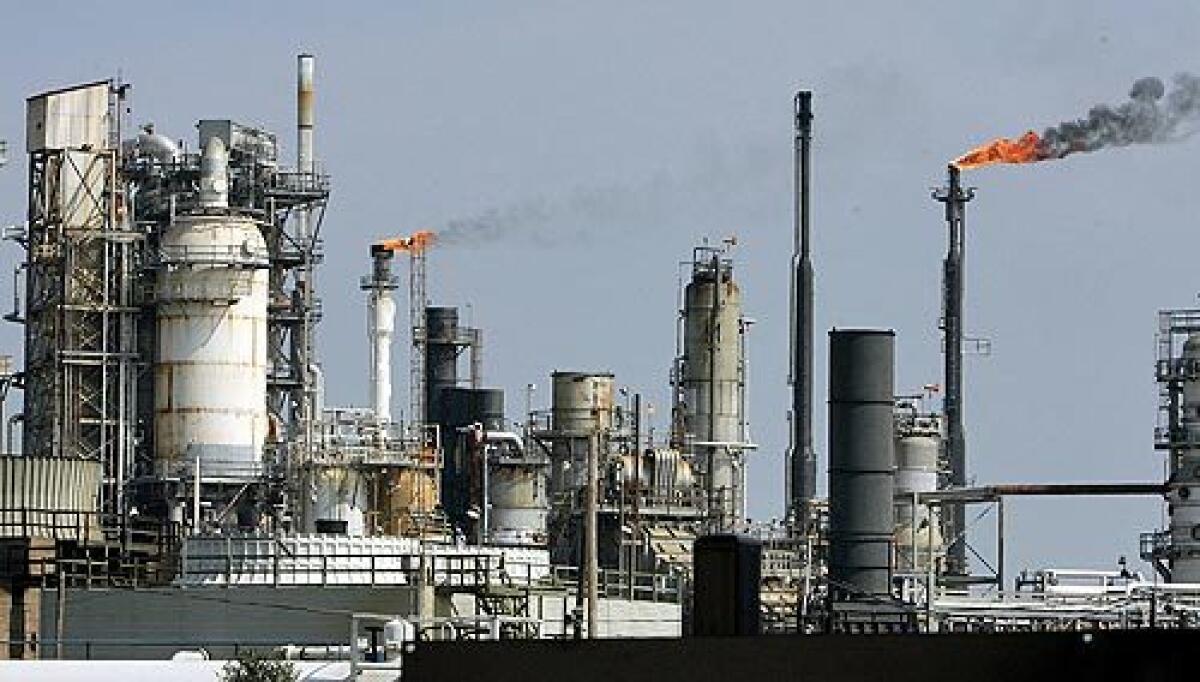Op-Ed: Why Big Oil fears being put on trial for climate change

Oil and gas companies are desperate to stop the wave of lawsuits seeking to hold them financially responsible for their role in climate change. Should these suits get to trial, their executives would have to testify about whether they knowingly misled the public about the climate threat posed by their products going back to the 1970s.
A federal district judge in a recent ruling made it harder for the defendants to shut down a lawsuit filed by the state of Rhode Island to have the industry pay the costs associated with climate change.
Judge William E. Smith ruled that the suit against 21 oil and gas companies, including Exxon, Shell and BP, should be heard in state court — a venue that the companies fear would be less likely to dismiss the case. Federal judges in Northern California and Baltimore, likewise, have ruled that these cases belong in state court. (I have been a pro bono consultant to lawyers representing government plaintiffs in these cases.)
Judge Smith also noted in his opinion: “Defendants understood the consequences of their activity decades ago, when transitioning from fossil fuels to renewable sources of energy would have saved a world of trouble. But instead of sounding the alarm, Defendants went out of their way to becloud the emerging scientific consensus and further delay changes — however existentially necessary — that would in any way interfere with their multibillion-dollar profits. All while quietly readying their capital for the coming fallout.”
A number of high-profile cases against other businesses that marketed and sold harmful or deadly products have succeed in state courts — especially when the businesses knew their products would cause injury.
State courts paved the way for the record $246-billion settlement with Big Tobacco. They secured the first major victory in the fight to hold opioid manufacturers accountable. And paint manufacturers have had to pay damages to clean up lead paint they sold despite knowing that lead is poisonous.
Those lawsuits, and the internal documents they uncovered during litigation, bear a strong resemblance to what we are learning about what oil companies knew about climate change, when they knew it, and how they funded a multimillion-dollar campaign to convince the American public that climate change isn’t happening.
We now know that at the same time oil companies were funding the disinformation campaign, they spent millions of dollars protecting their own assets — like oil platforms — from more-powerful storms and sea level rise expected as temperatures increase.
Climate liability litigation, filed by state and local governments around the country, raises a fundamental question: Who should pay for the damage climate change is already causing, and will continue to cause well into the future with accelerating sea level rise, more-intense flooding, larger wildfires, growing droughts and stronger hurricanes, if the federal government does not pick up the tab? Local taxpayers or the companies whose products caused the damage?
The discovery process in litigation — which allows the plaintiffs to get company documents and interview oil company executives — will play a large role in answering that question. There is already substantial evidence that oil and gas company executives created campaigns to convince the public that climate change was not a threat. It was discovery that changed the course of tobacco litigation. And damning documents are imperiling opioid manufacturers in court.
Needless to say, the oil companies are doing everything they can to stop discovery. Shell, Exxon and other oil companies do not want their executives testifying under oath about why the companies were upgrading their own facilities to prepare for climate change while publicly proclaiming that climate change wasn’t happening.
If governments get to the discovery phase and ultimately to trial, juries will be the ones to decide whether oil companies will have to pay for the climate change-related damage they have caused. Otherwise, taxpayers will be on the hook. A recent study by the Center for Climate Integrity found that coastal communities in the U.S. must spend upwards of $400 billion at a minimum in the next five to 10 years alone to protect property from sea level rise.
The recent federal court decision and the shifting momentum in favor of the plaintiffs have now upped the ante for oil companies. Expect them to increase pressure on Congress to block state and local access to the courts, while they continue to fight tooth and nail against any form of accountability to communities around the country.
Ann Carlson is the Shirley Shapiro Professor of Environmental Law at the UCLA School of Law and faculty co-director of the UCLA Emmett Center on Climate Change and the Environment. She provides pro bono consulting to some of the plaintiffs in climate litigation.
More to Read
A cure for the common opinion
Get thought-provoking perspectives with our weekly newsletter.
You may occasionally receive promotional content from the Los Angeles Times.










